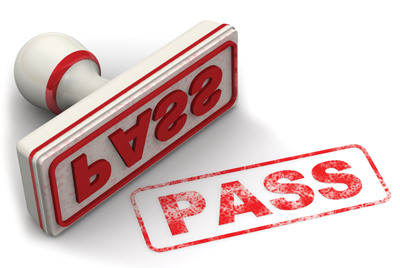5 Tips and Tools for Passing the CPA Exam
by Thomas J. Kleinhans, CPA, Centri Business Consulting LLC –
June 7, 2022

A lot of asset blood, liability sweat and equity tears are shed during every professional’s CPA Exam journey. No journey is the same, but every person is trying to reach the same destination: Pass all four sections of the Exam and become a certified public accountant. There are many methods to the madness, so here are five tips to keep you progressing forward:
- Do your homework before you buy the study course. It is vitally important that you choose a study review course that is well suited to your own personal study methods. If you rely more on memorization you may find that going through 300 multiple choice questions and highlighting a review book is easy with a less-expensive course like Gleim. If you are more of a visual learner, you may prefer Roger CPA because of their great teaching videos that can help you grasp things like the dreadful weighted capital expenditures calculation. Then there’s Becker that provides access to unlimited resources to back their reputable review course. Take advantage of the free trials from each provider to find the right fit for you.
- Study time means study time. In today’s technologically advanced world, distractions are more prominent than ever. A one-hour study session can turn into eight minutes of Instagram, 10 minutes of picking a playlist, 12 minutes of trying to create a non-fungible token and there goes half of your time along with half of your score! Make it a priority to find a setting that provides privacy and as few distractions as possible. Also, determine whether you are more productive using shorter study sprints or longer marathon sessions.
- Know your strong suits before deciding your exam order. Are you an auditor or a tax accountant? Did you excel in intermediate accounting or IT and microeconomics? Do you like hearing bad news or good news first? These are all questions you should ask yourself before selecting your first exam section. The Financial Accounting and Reporting (FAR) section has the most study material, so taking and passing FAR first gives you the advantage of not having that study time count against your 18-month window. However, if you want a confidence boost, maybe you want to take the Auditing and Attestation (AUD) section first and then dive into FAR. If you’re a tax accountant and have scheduled your first exam in January, you may want to take the Regulation (REG) section so the study material aligns with your work material. These are all personalized questions you need to ask yourself in the planning phase of the CPA Exam.
- Procrastination is a synonym for devastation. You’re six weeks away from taking the FAR exam, and your review book is starting to collect dust. If you continue to push off studying until three weeks before an exam, it is highly unlikely you will succeed in passing. Study calendars are a great tool to keep you on track, especially if your review course offers to implement the calendar.Turn on notifications so you get a text about when the next chapter is due. Also, always allow yourself a week prior to the Exam to review and take the simulated test.
- Tell your family/friends/co-workers you are taking the Exam. Studying for the CPA Exam is similar to working a second job, which means less time for family, fewer happy hours with your friends and practically no time to hang out with co-workers outside of work. Letting the people around you know about the Exam helps them understand why they will not have your undivided attention, which, in return, should help you stay focused. Also, if you run into a bump in the road, these are the people capable of helping you overcome any obstacle standing in your way.
There are plenty of days you will wake up and ask yourself, “Why am I doing this?” Make sure you’re taking this Exam for the right reasons, and you’ll have the coveted three letters at the end of your name before you know it!